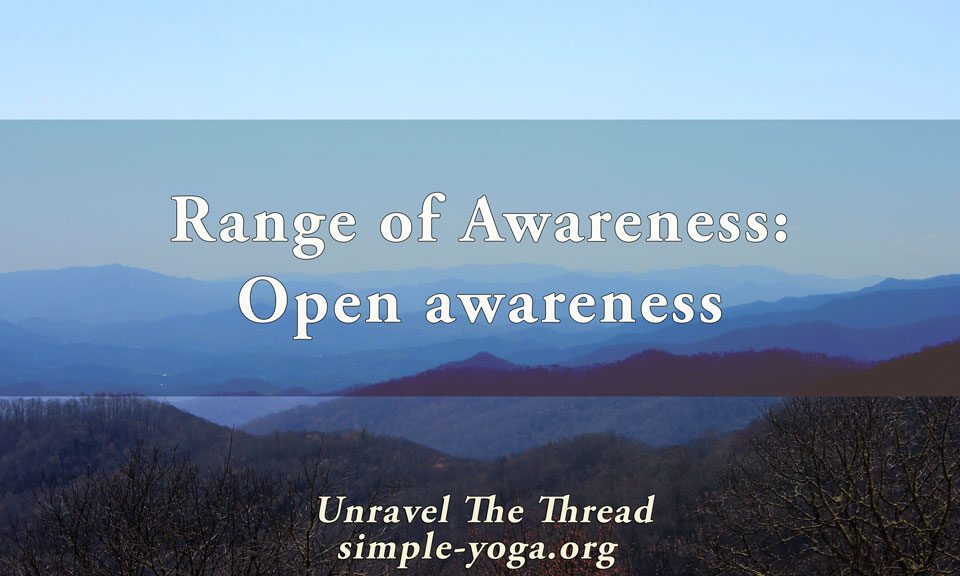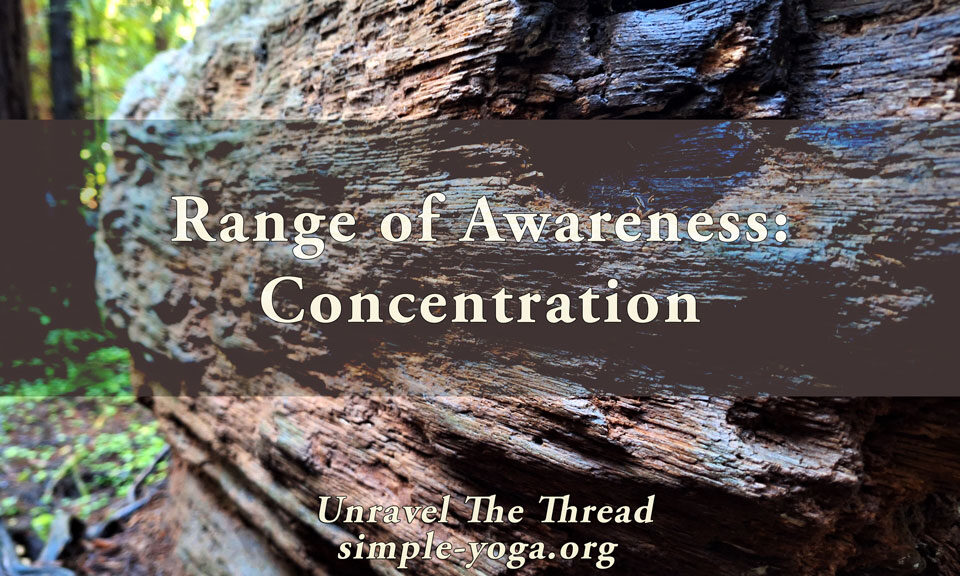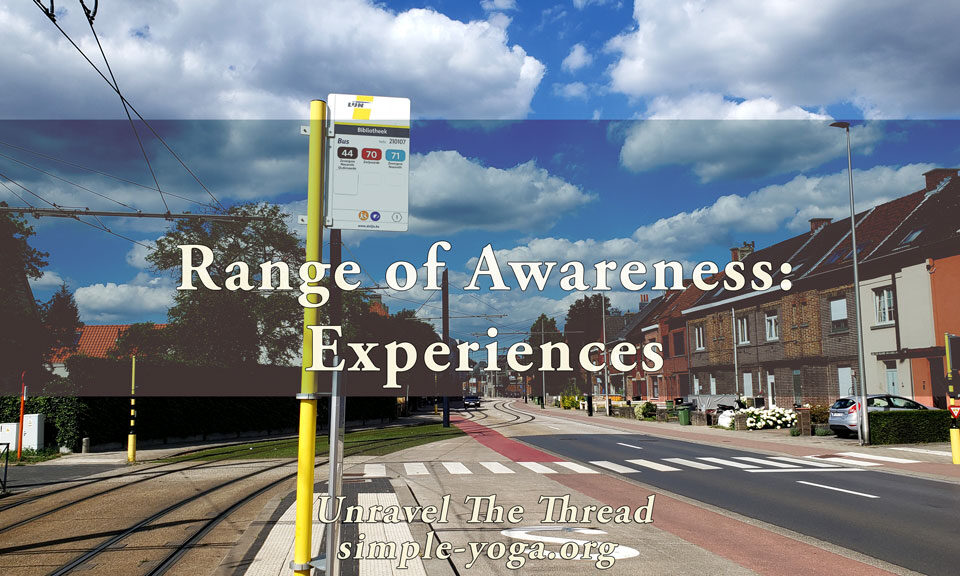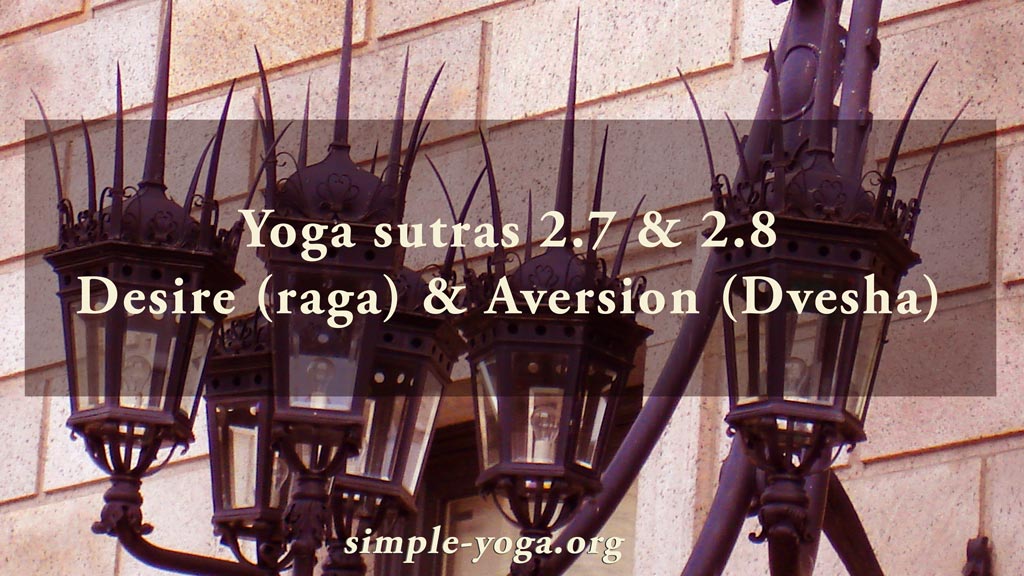
2.7 & 2.8 Desire and Aversion
April 26, 2020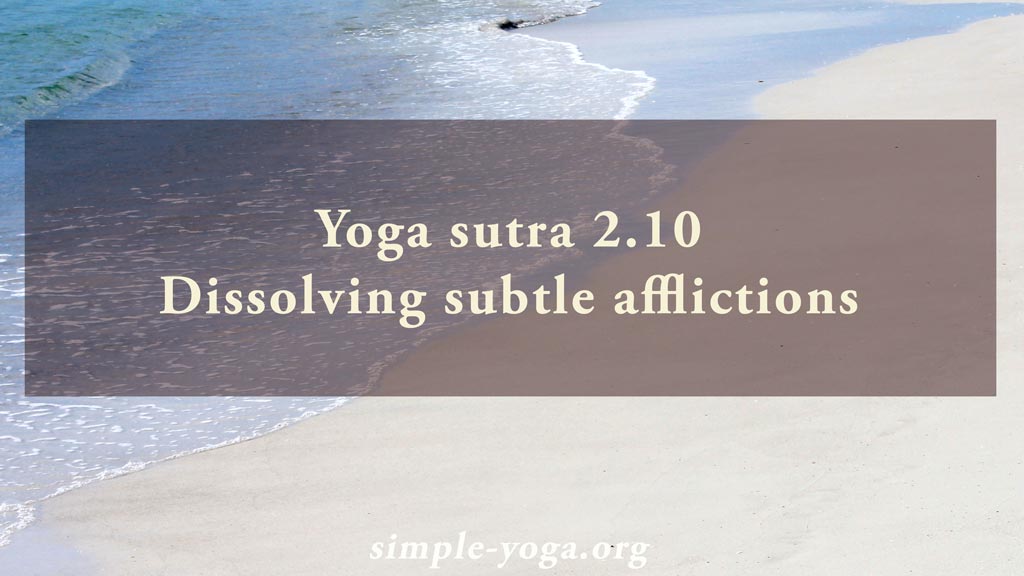
2.10 Dissolving subtle afflictions
May 11, 20202.9 Clinging to life
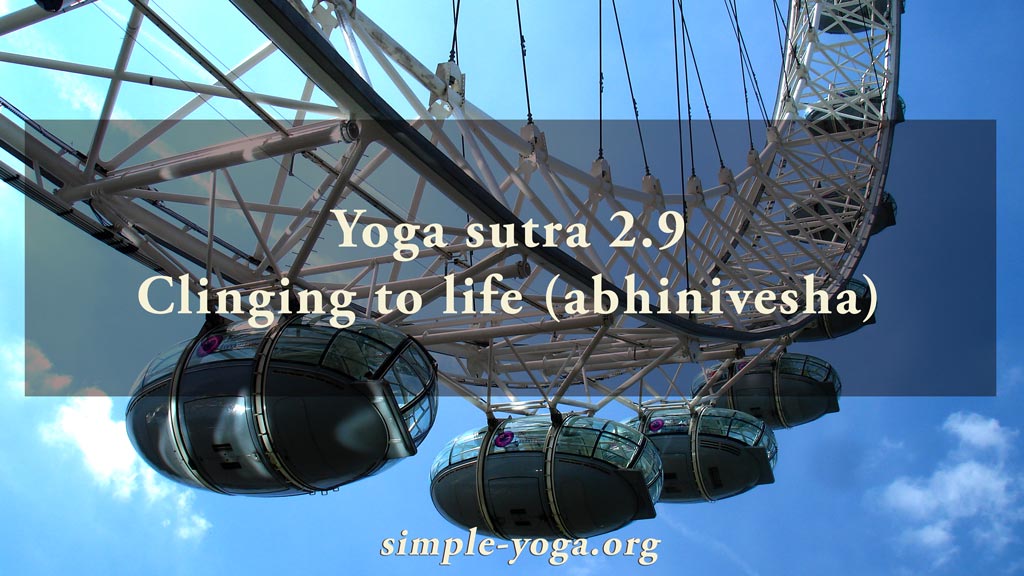
2.9 Even the wise develop a sense of self-importance that causes attachment to living and fear of dying.
Based on the previous sutras, the text argues that our misunderstanding of our nature (avidya) leads us to mistakenly associating ourselves with our thoughts about who we think we are (asmita). Consequently, we develop likes and cravings (raga) as well as dislikes and aversions (dvesha). The more invested we are in our identity, with all the ideas and activities associated with it, the greater our attachment to our life. This natural survival instinct is the strongest instinct in all living beings. The stronger our identification with our body, our mind and our emotions, the more we cling to our life. Regardless of how much information or knowledge we accumulate, attachment to our life remains strong. The traditional commentary on this verse argues that fear of dying is very strong in all of us, even though we have not had the direct experience of dying. Vyasa, the author of that commentary, makes the case for reincarnation by saying our fear of dying stems from having experienced the sharp pangs of death before. This notion and its implications may be an interesting point of departure for reflection.
In addition, the concept of life is a fertile ground for contemplation. What is your life? Is your life the elusive energy that enables you to breathe, move and think? Or is your life the fleeting sensory experiences that you have had? Is your life the memories of previous moments you consider important? Or, is your life the predictions you have about what you will do in the future? Other useful questions include, is your life your possessions? Your ideas? Your memories? Your accomplishments? Or the legacy you think you will leave behind? As you truly ponder these questions notice where your attachments to life come from: Is it from ideas that you have about who you are or should be (asmita)? Or do your attachments arise from your likes (raga) and dislikes (dvesha)?
It can be useful to also explore these questions: Do you live your life with a tacit assumption that your embodied life will last for a long time? Does that unspoken assumption influence your attitudes and actions and how you live your life? For instance, if you assume that you still have a long life ahead of you, does that give you permission to procrastinate? What happens if you contemplate the fact that nobody knows how long he or she will be alive? Some people view this last question as sad and dismal. Others see it as a powerful motivation to make each moment count. Can you reflect on the fact that sooner or later you will die? Can you come to terms with the inevitable decay of your physical body? Can you also see that millions of people before you have lived and died and that life itself has continued? Is it possible that there is no concept opposite to life and, that death instead of being the opposite of life, is the opposite of birth?
You may also consider another line of inquiry, what is the most important moment of your life? Is it some moment in your past that you either cling to because it was momentous (raga), or that you want to forget because it caused you to suffer (dvesha)? Is the most important moment of your life some moment that has not happened yet? If the most important moment in your life is in the past or the future, that moment exists only in your memory. Then keep in mind the paradox that every time you immerse in your memories and plans, you are stepping outside the ongoing flow of your life. You are ignoring the only moment where you can embody your life through your actions. What would it take to make the present moment, every single unique here and now moment, the most important moment of your life?
As usual, one more way of exploring the meaning of this sutra is by chanting it.
You can choose to chant it in its traditional form with some of the words coming together:
2.9 svarasvāhi viduṣo’pi tathārūḍho’bhiniveśaḥ
स्वरसवाही विदुषोऽपि तथारूढोऽभिनिवेशः ॥९॥
Another option is to chant each word in the sutra individually:
- sva
- rasa
- vāhī
- viduṣaḥ
- api
- tathā
- ārūḍhaḥ
- abhiniveśaḥ
If you prefer, you may listen to the podcast:
Unravel the thread is now available as a book!
If you find Simple-Yoga.org and Unravel the thread useful, consider supporting my labor with a donation, you may also donate using PayPal or Venmo. Thank you!

